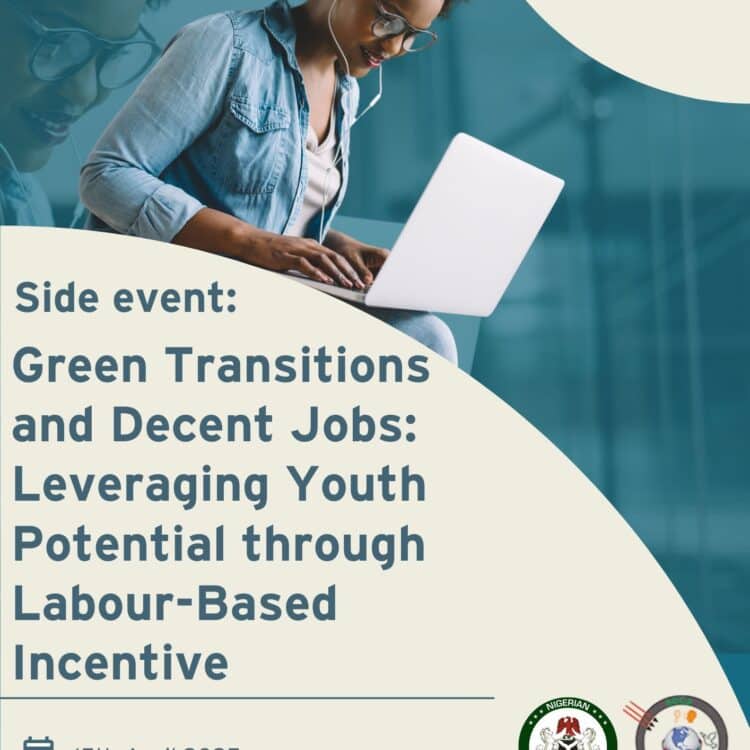
The first time I stood as a children’s advocate was at age 13 before the LS children’s parliament. The next time I did, I was 16, as a youth representative panelist of the Road to De-Janeiro sustainable development conference. At 22, it was as the Delegate of Ghana in the Global Goal Model United Nations in Thailand on tackling the issue of quality education for refugee children and Internally Displaced Persons (IDP). In this, I won the Most Outstanding Delegate award. Then last year at 23, it was the turn of Harvard University in the track of Global Markets & Economy where I was the only female African scholar, and I enriched the dialogue e African to solve issues on the Indonesian energy sector and the Sahel Refugee Crisis cases with my African cultural orientation. As it is not my first time in advocacy or diplomacy or policy briefing, I am a big fan of dialogue, especially for solving national problems. I particularly share the tripartite reason why the African Policy Dialogue (APD) on the role of the private sector on the youth unemployment challenge in Ghana was different and special to me.
Firstly, I am a youth and within the 15 – 24 age group as defined by the ILO. You know solving a problem for someone without involving the person is a failed course started. As much as it wasn’t a room full of old people and a separate youth dialogue had been held in Tamale earlier, it was beneficial for me that I was here. The world has rapidly experienced drastic changes in the past 10 years and even more disruptive in the last 2 years. What this means is that even a 30-year-old may not fully understand the plight of a 24-year-old. More so, we are talking about a labour force of young people (not just anybody). For me, productive dialogue is bringing stakeholders to the same table to understand each other, identify a problem and define the solution. Like resolving a conflict, sometimes it is expedient that both parties are present together to make the dialogue that saves the day. I am very glad that the APD did not listen to a single story by making a meeting for only youths. More importantly, I am happy that the findings of the day incorporated the views of youth in the private sector (fitting the double-checks of the topic of the day).
Secondly, I am an HR professional. As a young HR practitioner, the rich knowledge of technology, business operations, and HR practices made it insightful and intriguing to be part of a solution-driven team of HR executives from other workplaces that are driving productivity through a young workforce. The provision of a potential solution to the unemployment challenge was shown in the great work being done by Nestle, which included the Nesternships. As an advocate for learning and development (L & D) culture in organizations, I was impressed to get a case study of a company that is succeeding with a good L & D culture in Ghana – Nestle. I feel like many companies have dodged their responsibility to develop the competence of their staff, with poor training and career development plans. The presentation of Jones Aremu, HR Manager WAO earned my big respect for a company such as Nestle, and I hope many companies will do the same or better.
Thirdly, I am a private sector worker. With a bit diverse work experience in healthcare technology, and consulting industries, and research in the FMCG industry, it was easier to discuss the challenges of the private sector in promoting youth employment.
My big takeaway on the role of the private sector is simple! It is “Yes, we all need a young workforce.” It was found in Prof. William Baah-Boateng’s paper that unemployment is higher amongst university graduates than lower-level education graduates or drop-outs and this is not unbelievable in a world facing disruptions and an economy with a large agricultural sector. This brings up the subject of building employability skills to meet the demand of skill-gap. As a progressive company, build your learning and development culture. It increases the employability of your workforce (including interns), both for you and other companies for which they may work in the future.” Tackling unemployment is a collaborative effort, not a competitive one. So, I look forward to joining the Dhaka Chamber of
Commerce later this month on the related subject of improving student employability. Moreso, in the end, I pray the Ghanian dream of decent and productive work for all is fulfilled.
About Elizabeth Ewudiwa
A young HR professional & consultant, writer, branding coach, and public speaker. She is the founder of Elidiaries Foundation, a member of the HR Network Africa, Diplomatic Fellow of Federation of International Gender and Human Rights (FIGHR), New York, and author of “The Woman in Me” anthology. She is an alumnus of the New Business Challenge organized by GNBCC and the Harvard University project for Asia and International Relations (USA) and Most Outstanding Delegate award recipient of the Global Goal Model United Nations (Thailand). As a graduate of Central University (with distinction GPA 4.0/4.0), she is the Chancellor’s (Overall best student) Award winner, Best HR student award winner, and overall best female student winner of the class of 2018. She is the former Head of People & Culture at AMS Digital Solutions and works at Delft Imaging. Elizabeth is passionate about Learning & Development, the millennial and Generation Z workforce, law & analytics, brand management, and business growth. Some of her articles have been published in The Business Standard (Bangladesh) and the Business & Financial Times (Ghana).




